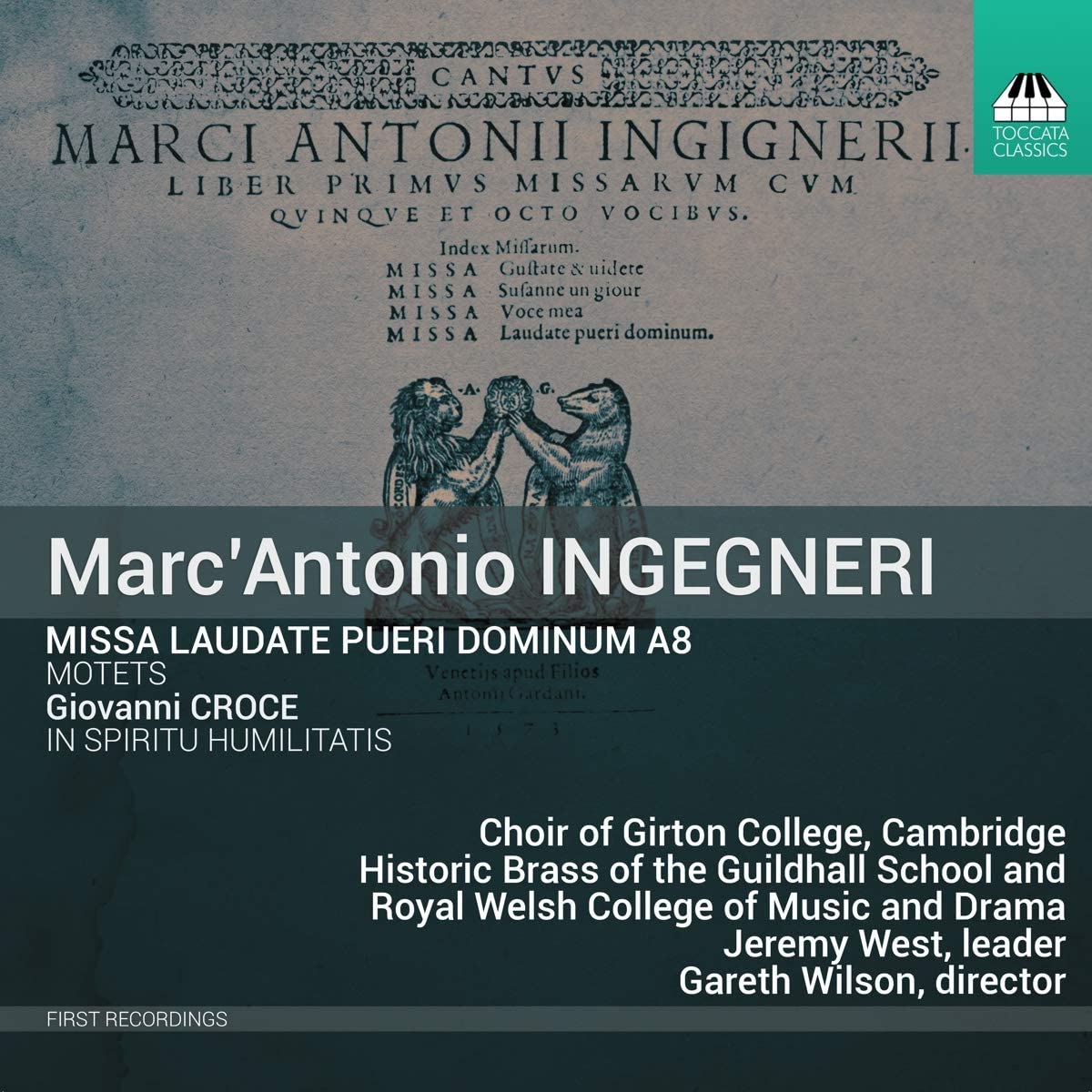Choir of Girton College, Cambridge, Historic Brass of the Guildhall School and Royal Welsh College of Music and Drama, Jeremy West (leader), conducted by Gareth Wilson
70:03
Toccata Classics TOCC 0556
Click HERE to buy this on amazon.co.uk
Some luckless composers who deserve to be better known in their own right are encumbered with one particular identity tag before being passed over. So to focus us on Ingegneri alone, I will not mention whose teacher he was. Born in Verona either in 1535 or 1536, but working mainly in Cremona, Ingegneri is audibly a beneficiary of the preceding Franco-Flemish School but is even more audibly an Italian contemporary of Palestrina and a musical product of the Counter-Reformation. Indeed, Palestrina is one composer whom it is appropriate to mention in this context, as Ingegneri’s Missa Laudate pueri Dominum in eight parts is based upon Palestrina’s motet on that text which, to adapt a phrase from the world of wine, also reveals, quite literally, some Franco-Flemish notes. Sometimes a derived mass can outstrip its original in quality or in other instances a strong original can dominate a less distinguished mass. The current instance is a perfect marriage of mass and motet, both being of the highest class.
The booklet is built around two fine essays – “The Council of Trent and the music of Marc’Antonio Ingegneri” by Giampiero Innocente, which provides a superb overview of the composer and his music on this disc (plus, where relevant, some which is not); and “For Love is as Strong as Death” by Gareth Wilson, which stems from the experience of himself and the Choir in performing and recording the music represented here.
Ingegneri judiciously selects what Innocente aptly describes as “fragments” from Palestrina’s teemingly laudatory motet (not included on the present disc, but there is a fine performance by Westminster Cathedral Choir on Hyperion CDA67099) and is entirely his own man in utilising them to project the text of the mass, sometimes with restraint and limited vocal resources, at other times letting rip with sonorous climaxes, but always with unerring judgment, with polyphony and homophony in exactly the right measures. He is also his own man when it comes to textures and harmony, so, for instance, Gareth Wilson draws attention to Ingegneri’s discerning use of the augmented sixth chord in the Credo which notoriously may or indeed may not also resonate in Byrd’s Civitas sancti tui.
The chosen motets are all impressive. They range from a couple of modest works in a mere five parts to “big biffers” in eight, twelve, and in the case of Vidi speciosam no fewer than sixteen parts. Nowhere does Ingegneri let loose mere grandiloquence in any of these works, and he always places his massed vocal resources at the service of the verbal text. Besides the movements of the Mass interspersed among the motets, another thread unifying the programme is the inclusion all of Ingegneri’s settings of texts from The Song of Solomon. For reasons not made clear in the booklet, the disc concludes with In spiritu humilitatis a8 by Giovanni Croce, which all but upstages Ingegneri’s own motets.
As on their previous discs of this repertory, the Girton Choir is in fine form. The accompaniments by the Historic Brass are historically informed (as such matters have to be nowadays if the participants desire credibility) and they complement the music perfectly, while the remarkable expertise of individual players comes to the fore in two motets in eight parts which are performed by brass alone. On the evidence of the music presented here, this recording deserves to be a landmark in a broader appreciation of Ingegneri’s music and by the same token Ingegneri deserves to be regarded in his own right as one of the outstanding composers of his day or of any other … regardless of whom he taught.
Richard Turbet
